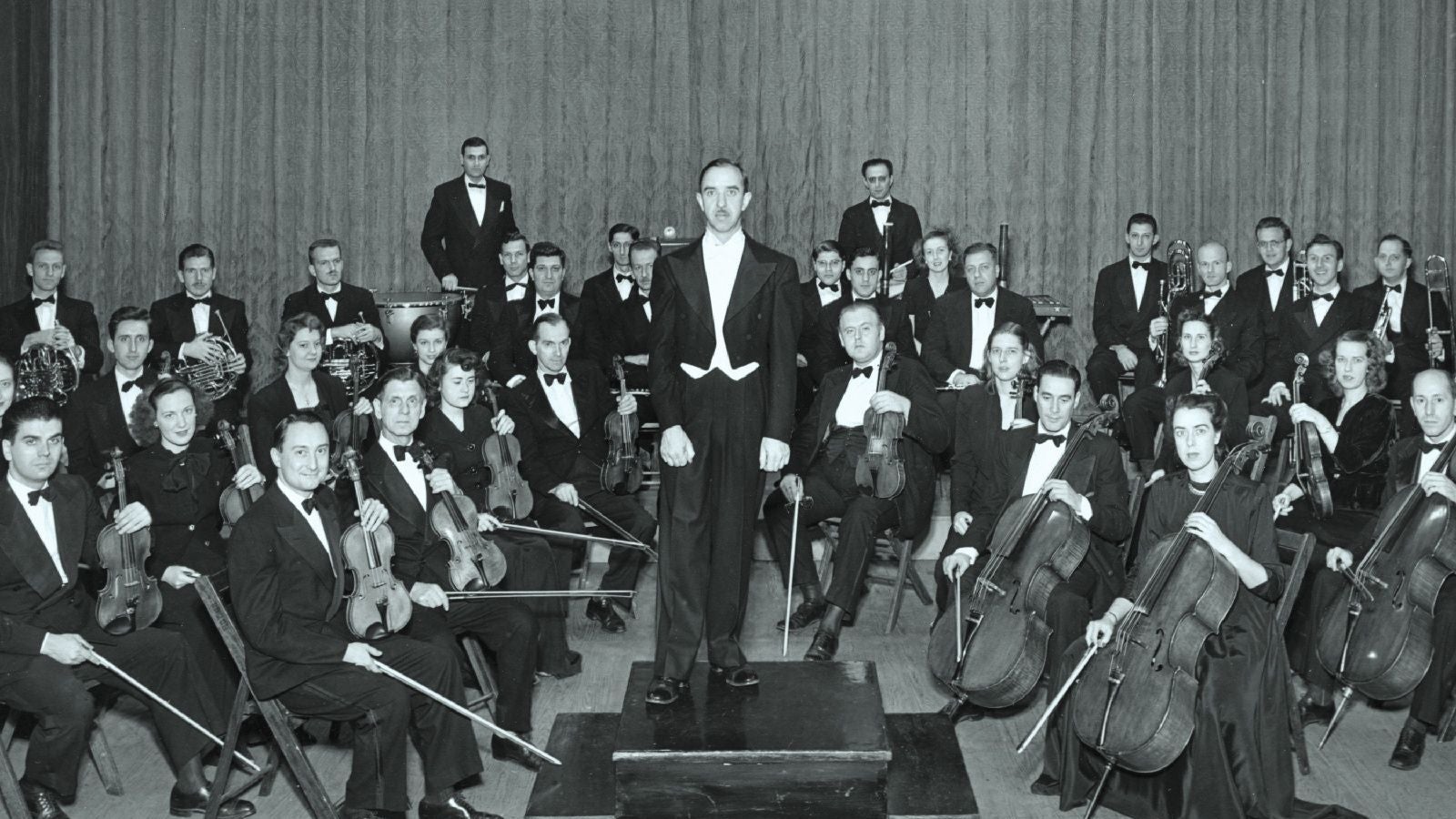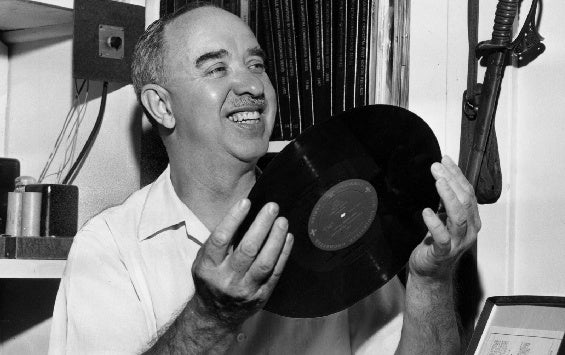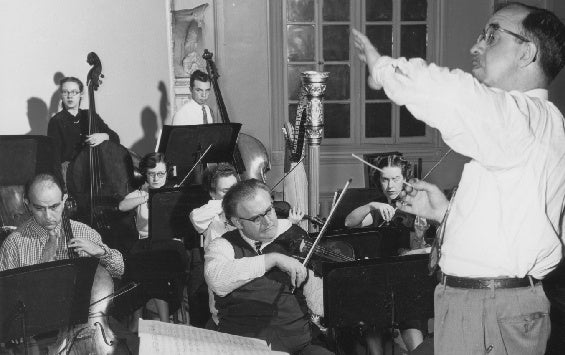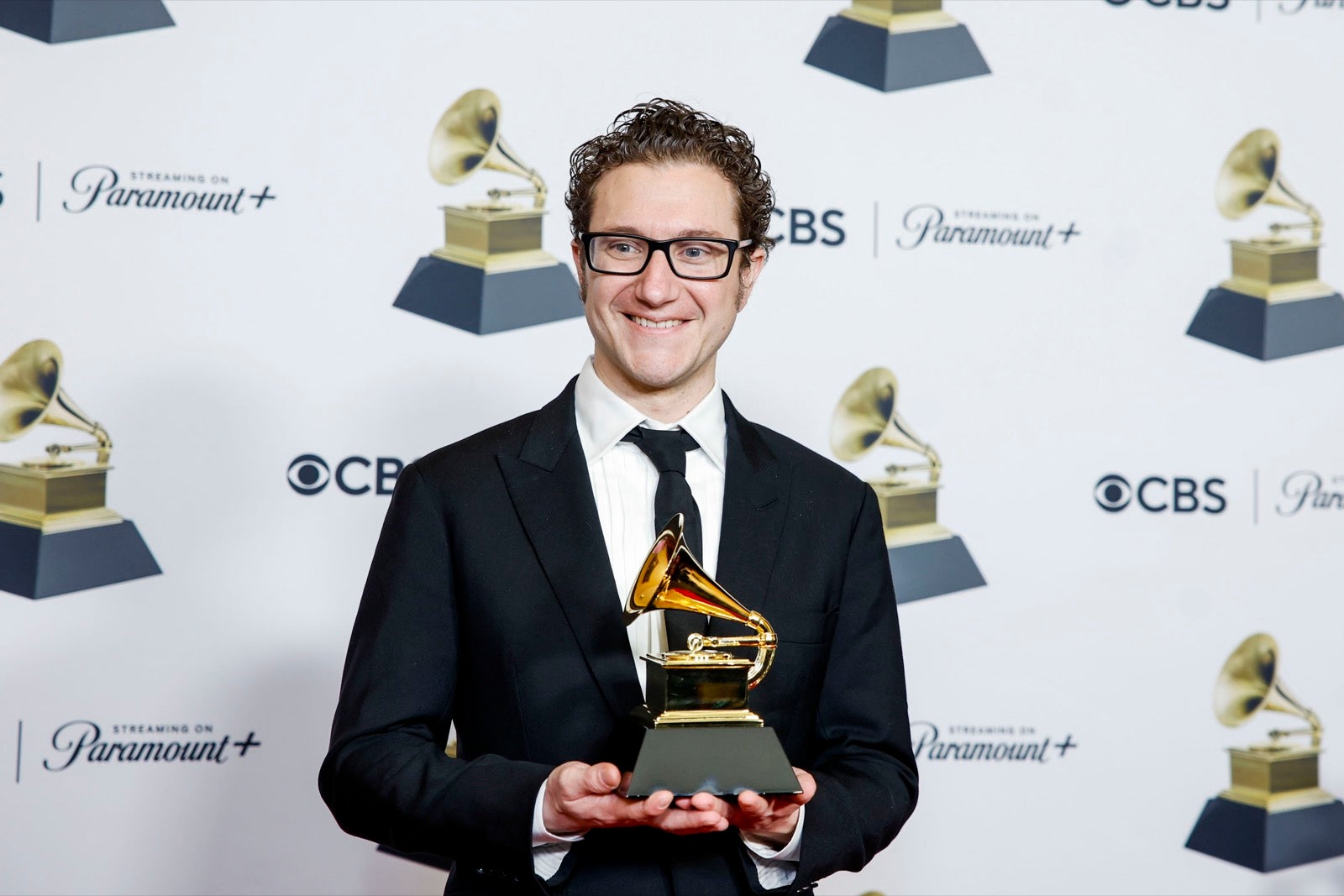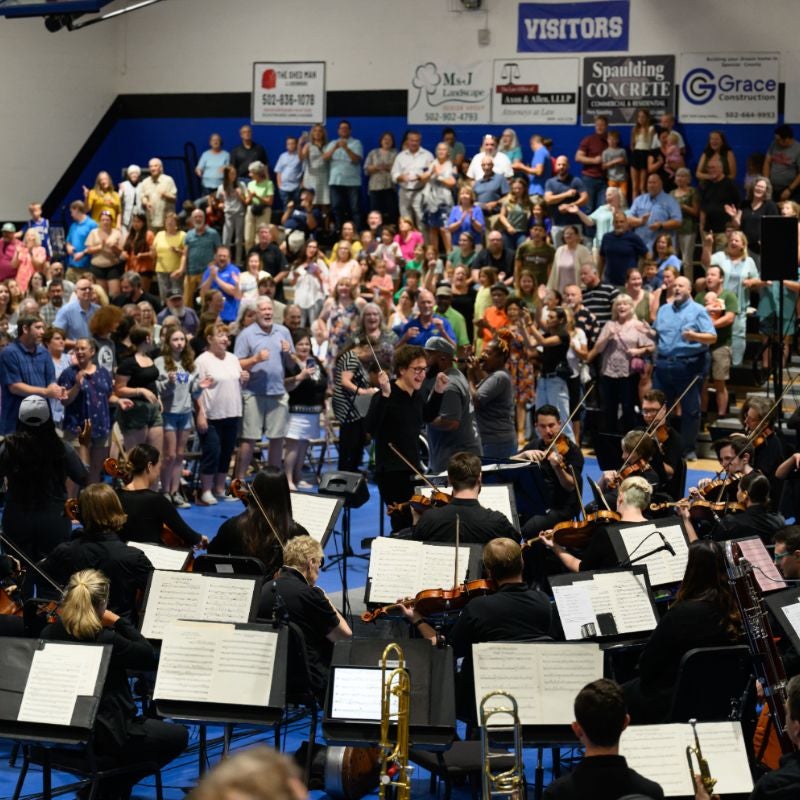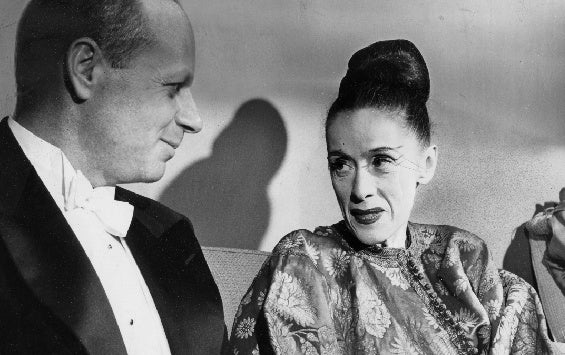
A Bold Vision
1948-1950
Only ten years after its formation, Maestro Whitney and Charles Farnsley, the visionary Mayor of Louisville (1948-1953), conceived an adventurous plan to make the commissioning, performance, and recording of new works for orchestra a centerpiece of the Orchestra’s global mission. Internationally recognized composers were approached to create commissioned works to be premiered by the Louisville Orchestra and an exciting series of new works was launched. The classical music world took notice. Wide critical acclaim and a resulting invitation to perform at Carnegie Hall followed on the premiere of a new commission from American composer William Schuman and the joint commission for choreography. His dance concerto, Judith, was premiered by international dance superstar and choreographer Martha Graham on January 4, 1950.
